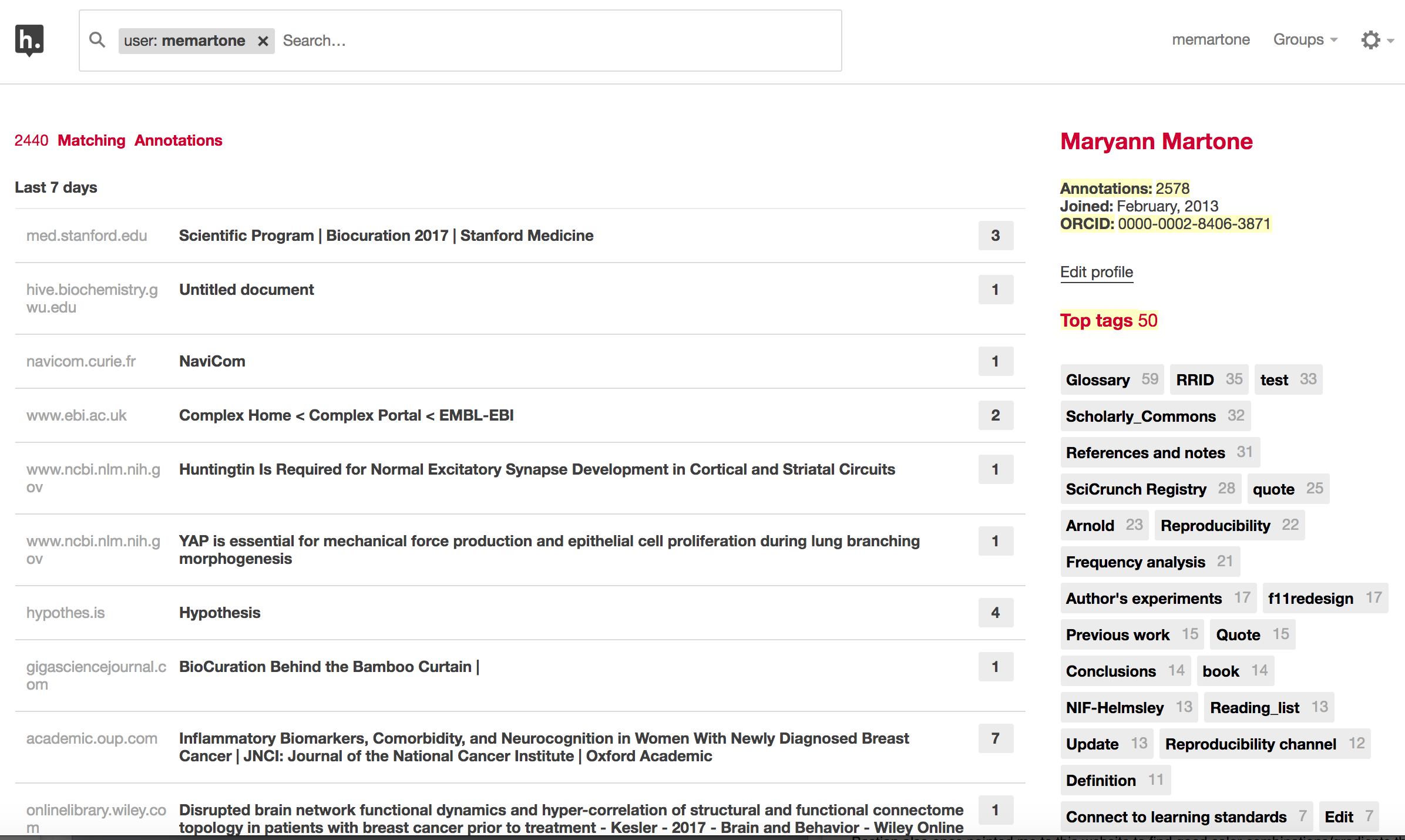Hypothesis for Scientific Research
Hypothesis has as its mission to enable a conversation over the world’s knowledge. And by all accounts, we are succeeding. Hypothesis just passed a major milestone with its 1 millionth annotation. It is being used across education, investigative journalism and research to add a dynamic, interactive, web-based discussion layer to share knowledge.
Hypothesis is enjoying robust use in the sciences: in STEM education (e.g., Science in the Classroom), as a tool for scientists to critique reporting of science in the popular press (e.g., Climate Feedback), for journal clubs and by individual researchers engaging in public or private group discussions on scientific papers.
I joined Hypothesis as Director of Biosciences because I believe that annotation-the process of adding information to a snippet of text, a gene sequence or any other data type-is an integral process in biomedicine, spanning all phases of the scientific workflow. Some of these uses are conversational, as Hypothesis originally envisioned: people ask questions, get answers, make comments. Traditionally, these processes are done in the margin of paper copies and lab notebooks or in conferences, classrooms or journal clubs.
Other annotations are more formal and authoritative; experts extract structured knowledge from the literature, annotate gene sequences with biological information or supply clarifying information to published works.
With Hypothesis, both conversational and authoritative annotation can be done in an open, web-based and interoperable manner, so that knowledge can not only be added and discussed, but it can also be shared across platforms. Annotation can become part of the scientific workflow, from production to review to publication and beyond. Hypothesis is working with partners like eLife to integrate Hypothesis into the peer review process. Curators in neuroscience are generating and curating automated annotations of research resources and piping them into the Hypothesis client where they can be openly shared. In recognition of the importance of annotation, Hypothesis now allows researchers to link their Hypothesis profiles with ORCIDs.
I am an avid user of Hypothesis, and as a scientist, author, reviewer and editor, I see first hand its utility in supporting research. In fact, since starting at Hypothesis, I have found that my research and reading habits have changed. Prior to using Hypothesis, I routinely downloaded and printed out articles to read when I was researching a paper or topic. If I thought about it, I would import the paper into a reference manager to make it easy to reference later, but often I did that step completely after I wrote the manuscript. But since coming to Hypothesis, I find that the ability to take notes anchored to specific passages of text, and have them tagged and searchable across papers, are such major benefits that I prefer to read articles online. I don’t even like reading them on my tablet, as I find the annotation functions much more limited (no search, no tagging), and I take much richer notes when I’m using a real keyboard.
I’ve also found that Hypothesis has largely replaced my use of reference managers as a means to organize important papers. Particularly with the new Profile pages and search functions, it is very easy to see what articles I’ve been annotating, and to organize and find my notes.
In the last scientific manuscript I wrote, I took advantage of Hypothesis direct links to annotate my emerging text with the exact snippets and notes that I used as sources for particular text. This process involved copying and pasting the direct links into the Google comment window, which of course took some effort. But as the manuscript was refined, I could click on these links to take me, not only to my original source, but to the exact location within that source that I was referencing. As the process of writing takes several weeks, these direct links were invaluable for fact checking and for compiling the final references. And, when I found out that the style guide for that journal requires page numbers for direct quotes, it was a simple matter to peruse my annotations, click on the links and note the page number.
I look forward to the day when annotation is fully integrated into the scientific workflow, including electronic lab notebooks, ensuring that valuable knowledge and information is not lost during the process but endures as a searchable and shareable knowledge layer.
